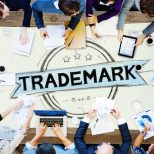
Trade mark update: How to classify NFTs, virtual goods and metaverse services
4th July 2023 by Tiff Elmer
Brand owners are considering the use of their trade marks and how best to protect them following the UK Intellectual Property (“IPO”) published on 03 April 2023 the ““Practice Amendment-Notice 2/23: The classification of non-fungible tokens (NFTs), virtual goods, and services provided in the metaverse” (PAN2/23).
What are NFTs?
NFTs are blockchain-based tokens that serve as a digital certificate of authenticity for digital goods. By creating unique tokens, NFTs offer a way to authenticate ownership of digital goods, such as music, art, and videos, and to allow for their trade and transfer. This innovation is a game-changer for creators, who can now sell their digital goods as unique, one-of-a-kind items, rather than just as generic copies.
The world of digital goods has always existed in a grey area within the world of commerce. Since digital goods are intangible and can be easily copied, it has always been challenging to differentiate between the original and the copies, causing issues for creators and distributors. However, the recent development of Non-Fungible Tokens (NFTs) has brought about a significant change in the way that digital goods are authenticated and traded.
In PAN2/23, the IPO has confirmed that NFTs will not be accepted as a classification term alone without reference to the asset to which it relates. However, goods authenticated by NFTs could be accepted in multiple different classes depending on the relevant underlying assets.
Before we dive in deep, if you don’t know already, the types of goods and services that a business may offer are divided by the IPO into 45 different ‘classes’. These classes are selected when making an application you will be using your trade mark. To put this into context, a digital file (such as digital art, software, or other files), authenticated by an NFT could be accepted in class 9. This is currently the most common use of NFTs but is not restricted to digital goods only. As such, artwork (class 16), handbags (class 18), clothing (class 25) or all manner of other goods that have been authenticated by NFTs could be registered in their respective classes as appropriate to the business. The IPO also envisions the use of NFTs in the provision of services. For example, membership of a gym (class 41), or entry into an event like a cinema screening (class 41), could be linked to an NFT and registered as a trade mark.
However, the IPO has confirmed requirements for clarity that apply to physical goods also apply to digital goods and will need to be clearly defined as to what they specifically relate to. For example, the following terms “downloadable virtual clothing footwear, or headgear”, or “downloadable virtual handbags” are acceptable.
What is the metaverse?
It is not easy to define the metaverse. However, in PAN2/23, the IPO uses a succinct definition: “a form of digital reality, where people can access virtual worlds and interact with others”. For example, the gaming industry is at the core of the metaverse and is a virtual service.
As with NFTs, when classifying virtual services, the IPO guidance sets out that the relevant class is that of the underlying service. For example, when registering a mark for a service that conducts interactive virtual auctions, this would be registered in class 35. On its face, there is no reason why the provision of services through the metaverse would be any different to the provision of these services in reality. A virtual auction in the metaverse is, in principle, no different to one conducted online through video conferencing software. However, for some services, the introduction of the metaverse can be more complicated and may not naturally fall into the normal classes. For example, a consumer may one day, be able to buy food in the metaverse. This could include buying both digital services (for their avatar) and/or physical services (food being sent to the consumer’s home). The IPO has clarified that when a mark is being registered for a service provided through the metaverse the examiner will seek clarification if the service is provided inside or outside the metaverse. The selling of virtual food or drinks within the metaverse is not considered a class 43 service. Therefore, brand owners who traditionally operated restaurants and are considering any expansion into the metaverse, will need to consider if their current registrations are sufficient. The IPO advises that a more general entertainment services registration (class 41) maybe the most appropriate. However, consideration will need to be taken on a case-by-case basis.
Conclusion
Many brands may not yet be thinking about the impact of NFTs, digital goods or metaverse services. However, if these technologies become more widespread, as many advocates of Web3 predict they will, all brand owners will need to audit their brand portfolios or make new applications to ensure their marks are protected in line with these developments.
If you require any further information or would like to discuss any of the above further, then please contact Tiff Elmer at t.elmer@laceyssolicitors.co.uk or on 01202 377 814.



